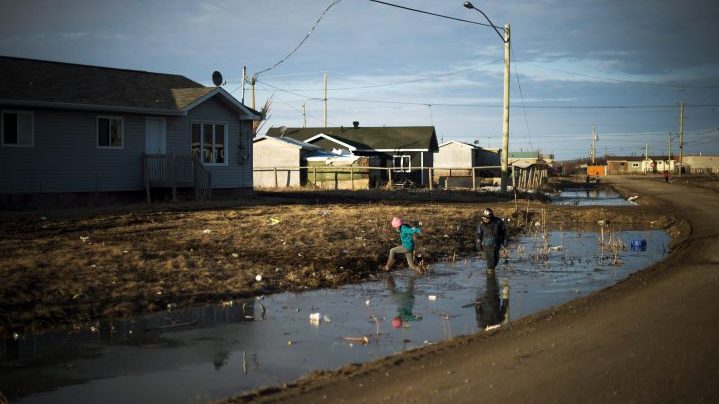A new study being released today says Indigenous children are more than two times more likely to live in poverty than other children in Canada, with little improvement over the last decade.

The study from researchers at the Assembly of First Nations and the Canadian Centre for Policy Alternatives finds that just under half of First Nation children, both on- and off-reserve, live in poverty.
WATCH: Feb. 15 — Indigenous organization taking over CAS files involving First Nations families

That figure rises to more than 50 per cent when looking at First Nations children living on-reserve – the highest rate of child poverty found anywhere in Canada.
The on-reserve child-poverty rate is roughly three times the national rate of 17.6 per cent reported in the 2016 census.

Get daily National news
READ MORE: 1 in 5 children in B.C. live in poverty — report
Taking a deeper dive into a decade of census data, the researchers find that poverty rates barely budged downward for most Indigenous communities between census counts in 2006 and 2016.
Official poverty statistics don’t examine on-reserve circumstances except during census counts, a situation the researchers say must change to better track anti-poverty efforts.







Comments
Comments closed.
Due to the sensitive and/or legal subject matter of some of the content on globalnews.ca, we reserve the ability to disable comments from time to time.
Please see our Commenting Policy for more.